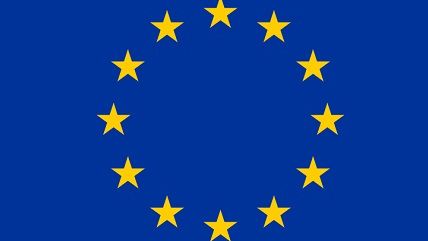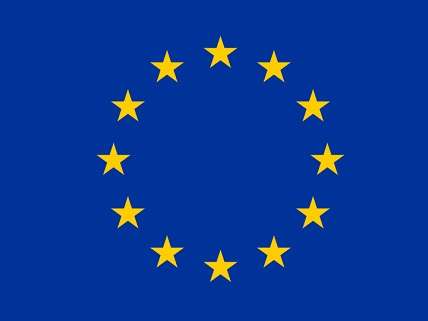Libertarians and the European Union: A Rejoinder to Petr Mach
Victory for the Eurosceptic forces would likely be a victory for protectionism, economic nationalism, immigration barriers, and Putin.


There is much to agree with in Petr Mach's response to my article about the European Union (EU). As he puts it, my defense of the EU is "utilitarian," not a principled one, and I fully accept that it is possible to imagine alternatives to the current political arrangements in Europe that would be much friendlier to individual freedom than the status quo.
Unfortunately, Mr. Mach's text does little to address my main concern, namely that such alternatives might not be on the menu of options available to us at the moment, and that the likely political dynamics of an EU downfall carry a big risk of making the continent, as a whole, less free.
It is naïve to think about a demise of the EU while ignoring the agendas of political groups that are pushing forward the Eurosceptic agenda. While Mr. Mach is a committed libertarian, he's in a minority. There is already a lot of talk about Red UKIP, following the party conference in South Yorkshire, at which the left-leaning members held a fringe meeting. Or, take Italy's Five Star Movement, for example, which belongs to the same parliamentary group in the European Parliament as Mr Mach's Svobodní, and which advocates public investment into energy efficiency, a ban on stock options, and promises to fight socially harmful businesses such as "distributors of bottled water."
If that sounds relatively innocuous, the manifesto of Marine Le Pen's National Front offers some bolder ideas. It calls for "strategic planning of the re-industrialization," under the auspices of the prime minister, using insights of leading academics, representatives of business, and of the government. "This policy is to take place in parallel with the introduction of reasonable border protection against unfair international competition (targeted tariffs and quotas)," according to the manifesto. Other policy ideas include the regulation of banking fees, unspecific policies aiming to "establish an equilibrium between independent business and large supply chains," or international bans on financial derivatives.
For the sake of completeness, one could also discuss the policy ideas of Syriza, the Greek left-Eurosceptic group whose platform is based on a wholesale rejection of the 'austerity' allegedly imposed on the country by the Troika. But bad economic policy is not the greatest danger posed by illiberal Eurosceptics.
What unites most Eurosceptic parties, notwithstanding the libertarian rhetoric of some of them, is their opposition to immigration—and to the free movement of people within the EU. Says UKIP's Nigel Farage: "Immigration has now become the number one issue in British politics, we cannot have our own immigration policy and remain a member of the European Union." Or, as the Five Star Movement's Beppe Grillo wrote in his diatribe against Romanian immigrants, "the boundaries of the fatherland used to be sacred; the politicians have desecrated them."
Indeed they have—and it is a wonderful achievement. The free movement of labor within the EU has been beneficial economically (e.g.), and also in terms of advancing a principled free-market agenda. Immigration restrictions are the single biggest source of systematic injustice in the world, trapping millions of people into permanent poverty and lack of opportunity by the accident of their birth. The fact that over a million Poles are able to live and work in the UK and Germany (combined), without asking for anyone's permission, and send home $2.7 billion in remittances each year is far cry from the world without borders that free-market enthusiasts would like to see, but it is something to be celebrated, cherished, and defended.
While free trade in goods in Europe could be salvaged if all countries leaving the EU decided to join the European Free Trade Association—as Mr. Mach rightly recommends—free movement of people would be the first thing to go should illiberal Eurosceptics have their way. In and of itself, that should raise doubts about the freedom-enhancing effects of a demise of the EU even if we assumed that all other problems (such as the unwinding of the Euro) would somehow be resolved to everyone's satisfaction.
Furthermore, particularly for the small countries of Central and Eastern Europe, an exit from the EU would not happen in a geopolitical vacuum. Unwittingly, Mr. Mach's former boss, President Vaclav Klaus of the Czech Republic, alluded to this in an article earlier this year: "Russia does not want to passively accept the position of a country that has been permanently downgraded by having lost the Cold War." The friendly ties of some Eurosceptic groups with the Kremlin, most prominently of the National Front, are hardly a secret, and neither is the fact that a fragmented Central and Eastern Europe would facilitate the "logically emerging self-confident growth of Russian ambitions," to borrow Mr. Klaus' expression.
Libertarian Eurosceptics are correct to argue that, ceteris paribus, bad policy at the level of the EU is more damaging than at the level of a handful of nation-states. However, in Europe's political reality, the 'ceteris' are hardly 'paribus.' Victory for the Eurosceptic forces, which could plausibly bring about an exit from the EU or its complete demise, would likely be a victory for protectionism, economic nationalism, immigration barriers, and for Mr. Putin. We should think twice before becoming cheerleaders for such outcomes.


Show Comments (37)